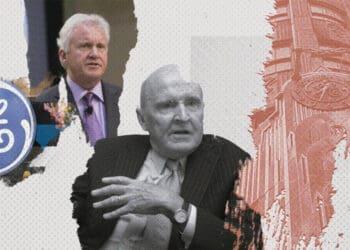As Andy Spalding, Assistant Professor at the University of Richmond School of Law and Senior Editor of the FCPA Blog, stated in a recent guest post on The Global Anticorruption Blog, “Most of us would agree that overseas bribery is not a victimless crime.” Professor Spalding adds, “the principal victims of overseas bribery are the citizens of those countries…whose governments have been corrupted.” Indeed, there has been a great deal of writing about the impact of bribery on issues such as governance, standards of living and even violence, as recently reported with respect to a gangland style murder of a former public official in Trinidad and Tobago.
In a June 24th, 2014 interview with the Wall Street Journal, Alexandra Wrage, President of Trace International, stated, “in fact, bribery is a precondition for terrorism. You see tainted pharmaceutical products getting onto foreign markets because of bribery. You see all sorts of problems that are much larger than the business community but that affect the business community because you all have employees working overseas.” Andrew Feinstein, author of The Shadow World, shares some of the horrors that corruption has brought down upon ordinary citizens in his book, and I asked him to reflect more about his thoughts on the victims of corruption, irrespective of market sector. Mr. Feinstein responded:
“My view is that bribery and corruption affects myriad victims. First, in the purchasing countries, taxpayers have to pay for the cost of the bribes that are often simply added to the price tag. For people on the economic edge, money is spent on items where the bribes are biggest (weapons, grandiose building projects, etc.) at the expense of dire socioeconomic needs or benefits. In addition, the practice of governance and the rule of law is undermined to both enable, as well as to hide, bribery and corruption. This corrosion of democracy and good governance impacts citizens in both buying and selling countries.”
Is thinking at the front-line level so elevated?
So, I ask, to an international businessperson or team, operating at the front line of overseas commerce, is the thinking as broad or as attentive as Professor Spalding, Ms. Wrage and Mr. Feinstein would argue? Relating to my own experience, as the final post on “rationalizing bribery” and the perfect storm, I would state not. Unfortunately, for those operating on the front lines of international business, especially in high risk areas, the thinking is more of “who is being hurt?” as opposed to “who am I hurting,” by engaging in corrupt behavior and transactions. As the title states, it is only an illusion, but at the front line of international business, bribery often appears to be entirely victimless.
In fact, there may be cases in which, due to the bribe, the end user pays less money for the product, as inside information passed corruptly allows a vendor to lower the price of the goods or services to secure a contract. In such cases, the businessperson might rationalize the corrupt behavior as a “win-win.” He or she secures the contract on behalf of the company, management is pleased with the completion of the sale and the end user ends up saving money. Again, while it is only an illusion, from the field perspective, this view will often prevail above the broader considerations of local standards of living, regime violence and good governance.
I consider this an under-reported but dangerous component of the rationalization process, as an international businessperson might see bribery through a distorted view of somehow providing value to both the company and the country.













